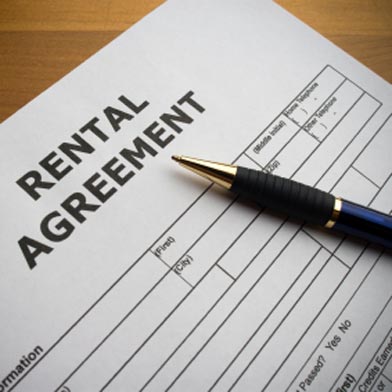
Supporters and opponents of room-sharing services such as Airbnb that allow people to use their homes as short-term lodging for a fee held dueling rallies today outside San Francisco City Hall, arguing over the future of how the budding industry should be regulated.
Opponents argued this morning against proposed legislation introduced this month by city Supervisor David Chiu, saying that the services were a violation of zoning laws and that existing regulations need to be enforced rather than introducing new legislation.
Airbnb supporters, assisted in their organizing efforts by the company, said they supported the idea of Chiu’s legislation but had some reservations about particular provisions and expressed fear that even stricter regulation could find its way onto the November ballot.
Chiu’s legislation would require those renting out rooms for less than 30 days to register with the city’s Department of Building Inspection and require that they are using the home as their primary residence and staying there nine months out of the year.
The legislation would also require businesses and individuals offering short-term rentals to pay a hotels tax.
This morning’s rally by what organizers called “an unlikely broad-based coalition” of landlords, affordable housing advocates and organized labor called on Chiu to withdraw his legislation.
The proposed ordinance “will only exacerbate the housing crisis,” San Francisco Apartment Association executive director Janan New said at the rally on the steps of City Hall. “This practice is detrimental to our rent-controlled housing stock.”
Companies like Airbnb are also costing the area jobs, according to Mike Casey, president of Unite Here Local 2, which represents hotel workers.
He said Airbnb has compromised the union’s struggle to make sure the hotel industry pays a decent wage now that tourists visiting San Francisco have the option to stay in local homes, steering visitors away from hotels.
Room-sharing opponents also argued that landlords and other tenants using Airbnb compromised building security by providing strangers with entry codes to apartment buildings and that allowing the practice would amount to rezoning all residential areas in the city as potential hotels.
The practice has already led to abuse—last week San Francisco District Attorney Dennis Herrera announced two lawsuits against landlords that he accused of evicting tenants under the state’s Ellis Act in order to rent the properties as temporary lodging.
New called this a step in the right direction, saying that anyone who wants to open a bed and breakfast in residential neighborhoods would normally have to go to the city and ask for a permit.
“We’re asking the city to enforce its laws before going out and creating new ones,” she said.
Pro-Airbnb organizer Peter K. argued today that room-sharing services are being used as a scapegoat and are allowing many residents to stay in the city by supplementing their income with short-term lodgers.
K., who declined to give his last name saying that room-sharers might face backlash from the bad publicity, rents his two-bedroom home in the North Beach area starting at $135 per night, according to his Airbnb profile.
He helped organize the 12:30 p.m. rally in response to the opponents’ rally held earlier in the day and spoke alongside fellow room-sharers who said they strongly support Airbnb not only because of the income they’ve made but the friends that shared their homes with them.
Melinda McLain said she has been renting out her Twin Peaks/Upper Market apartment for the last three years and started doing it to avoid moving roommates into her apartment.
But she said that inviting traveling strangers to stay has “turned out to be a really lovely addition to our life.”
She said as a musician she has brought fellow artists and musicians who would be unable to travel for extended periods without going through Airbnb—including an Italian couple that she played jazz guitar with in her living room, a violinist who practiced her chamber music, and soon a visiting singer with the San Francisco Opera.
“People come to San Francisco for very specific reasons and they want to live in the neighborhoods,” she said.
Leah Pimentel, 32, said she is a third-generation resident of the Bayview District and said she has had good experiences as an Airbnb host and if she were to lose her job she would immediately go to Airbnb to make up the lost income.
Airbnb said it has commissioned studies that show most people using the service in San Francisco are renting their primary residence and using the extra income to pay their rent, mortgage or other living expenses. According to Airbnb, the service makes living in San Francisco more affordable, not less.
Scott Morris, Bay City News









